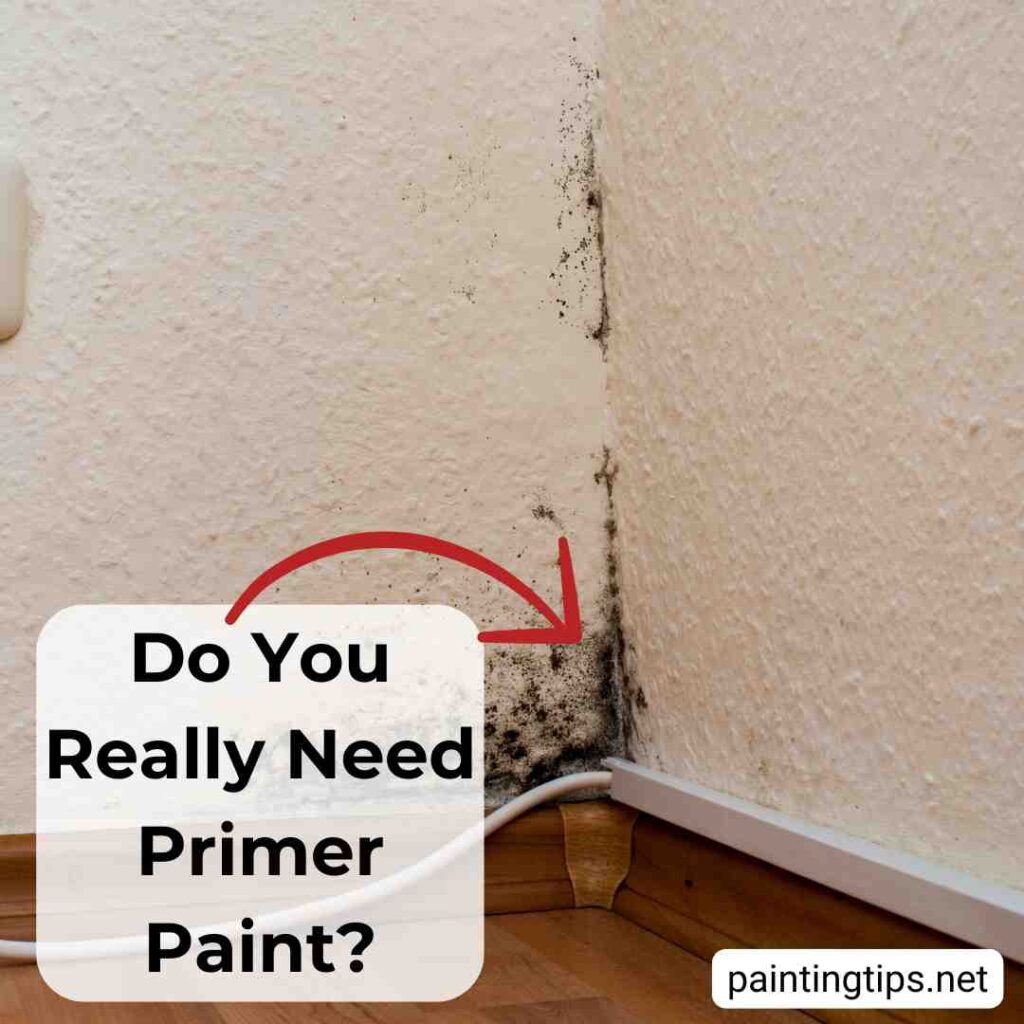Thinking about skipping primer before painting? You’re not alone—many DIYers and even some pros wonder if priming is truly necessary. While it might seem like an extra step, primer plays a crucial role in how your paint looks and lasts. In this guide, you’ll learn when you actually need primer, when you can skip it, and how to get the best results with or without it. Whether you’re painting new drywall, covering dark colors, or freshening up glossy surfaces, knowing how primer works can save you time and money.
Do You Need to Primer Before Painting?

Many people think primer is unnecessary for painting. While this can be partially true, using a paint primer minimizes risks during and after painting. If you want a smooth finish and avoid future issues, apply a primer before painting. Although skipping primer might save time at first, experienced painters know that priming brings long-term benefits that outweigh the extra effort. It also helps beginners by making the process easier and more efficient.
Skipping the primer can lead to problems. If you don’t check the surface carefully and skip a needed primer, you might end up repainting and wasting even more time. “Related article: What is paint primer?
Is Primer Necessary Before Painting?
It depends on the surface. Always examine the surface to decide whether or not you need a primer. If you’re painting over a dark color, a glossy finish, or a surface that has never been painted before, using a primer is necessary.
Do Professional Painters Use Primer?
Yes. Professionals evaluate the surface and use primer when needed to achieve the best results. However, some painters skip priming to save time, which can lead to issues with the paint over time.
Can I Skip Using Primer?
In some cases, you can skip using primer by sanding, cleaning the surface, and thinning the first coat of paint. If you’re applying the same type and color of paint on a clean surface, priming may not be necessary. For absorbent surfaces, you can use a thinned first coat of paint—diluted by about 15%—as a substitute for primer. If you’re planning to paint over a dirty surface, you can also skip priming after thoroughly cleaning it, as long as you’re using the same type of paint. Don’t forget to read the ‘How to Paint Without Primer?’ section at the bottom of this page for additional tips.
What Happens If You Don’t Use Primer Before Painting?
If you skip applying primer, you might experience issues like paint peeling, bubbling, or struggle to cover the previous coat effectively. It can also cause the surface to absorb more paint than expected, leading to increased paint usage.
Do you Have to Prime Before Painting?

Priming helps prevent many issues that may arise after painting and makes it easier to cover the old paint color. However, it is a time-consuming process. That’s why some people prefer to paint without using a primer. Yes, you can paint without primer, but when should you use it? Do you really need primer? Here are the benefits of using primer and detailed information on when you should apply it.
1-On Unpainted Surfaces
Bare walls and wood absorb paint quickly, increasing paint consumption. A primer prevents waste and helps the topcoat adhere smoothly.

2-Over Different Paint Types
If switching from one paint type to another (e.g., oil-based to latex), the new layer may not adhere properly. A primer creates a strong bond between different paint types. “For detailed guidance, read our article about applying latex paint over oil paint.”

3-On Dusty or Greasy Surfaces
Painting on dusty or greasy surfaces is risky for all types of paint. Dust and grease prevent the paint from adhering properly. Cleaning the surface thoroughly and applying a primer before painting ensures better adhesion.

4-Before Painting Slick or Glossy Surfaces
Paint does not adhere well to glossy and smooth surfaces. Primer helps the paint stick better to glossy surfaces and reduces the risk of peeling.

5-Covering Dark Colors
Primers provide better coverage than standard paints, making it easier to cover dark colors with fewer coats and reducing paint consumption. Check out this guide to discover how to paint over dark colors without using primer.

6-Special Paints or Risky Surfaces
Some projects, such as epoxy or decorative surfaces, require special primers to achieve the desired look. Additionally, priming the surface beforehand helps eliminate risks when applying specialty paints. “Related article: Bathtub peeling.”

7-In Areas Prone to Moisture
Walls exposed to moisture, mold, or mildew require a special primer or paint. However, it is crucial to address the source of the moisture first. “See our related article on effective ways to eliminate bathroom mold.”

8-After Wall Repair
We recommend using a primer after repairing a wall that is peeling, bubbling, or has plaster coming off. Applying primer helps ensure the old paint color matches the new one and prevents the filler or plaster from absorbing the paint.

How to Paint Without Primer
While using a primer is ideal, here are some ways to skip it:
- Sand slick surfaces: Sanding creates a rough surface for the paint to grip. Be sure to clean off dust before painting.
- Thin the first coat of paint: Dilute the first coat by 15% with water (for latex paint) or thinner (for oil-based paint) to prevent excessive absorption.
- Use the same paint type: If you know the type of old paint, applying the same type can eliminate the need for a primer.
- Match the same or a darker color: Painting with the same or a darker color reduces the need for primer.
Frequently Asked Questions
Using primer ensures a smoother finish, fewer issues, and a longer-lasting paint job—whether you’re a beginner or a pro. If you have any questions about when or how to use primer, don’t hesitate to ask!
Is primer necessary for beginners?
Yes. Beginners benefit from using a primer since it minimizes mistakes and ensures better coverage.
Do you need to use primer when painting over paint?
If the new paint is the same type as the old one, or if the new color is darker, you may not need a primer.
Do you need to use primer when painting over paint on wood?
If the wood has never been painted before, you can use a primer. Priming is especially recommended if the surface is covered with MDF.
Do I need to prime before painting drywall?
You need to prime drywall before painting. This helps prevent the paint from peeling quickly and reduces paint consumption. See our related article on preparing drywall for painting.
Do I need to prime before painting exterior?
Exterior painting is crucial for the paint’s durability against harsh weather conditions. Priming is necessary, especially if the exterior has never been painted before. If there is peeling or bubbling in the previous exterior paint, we recommend repairing it first and then applying a primer.